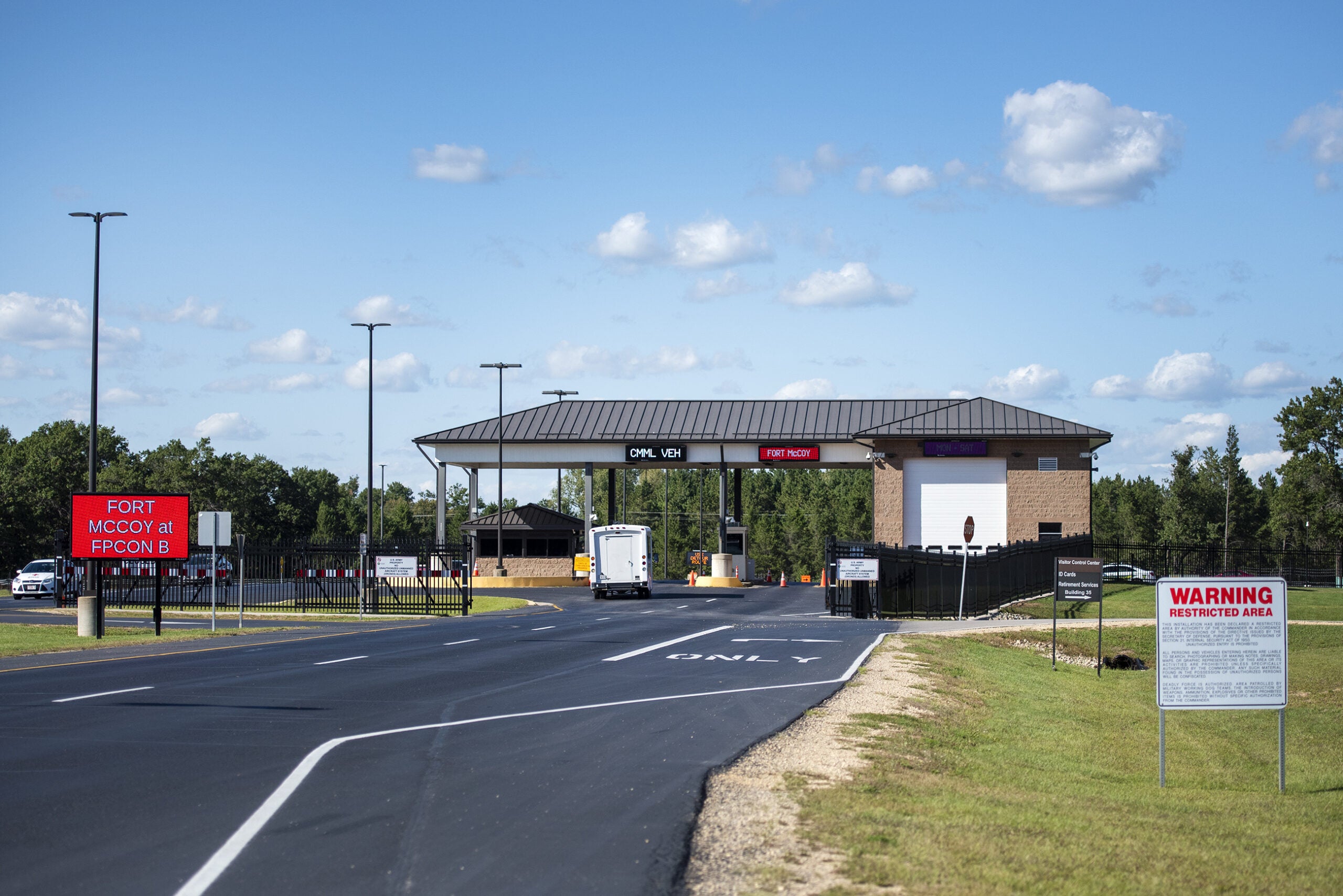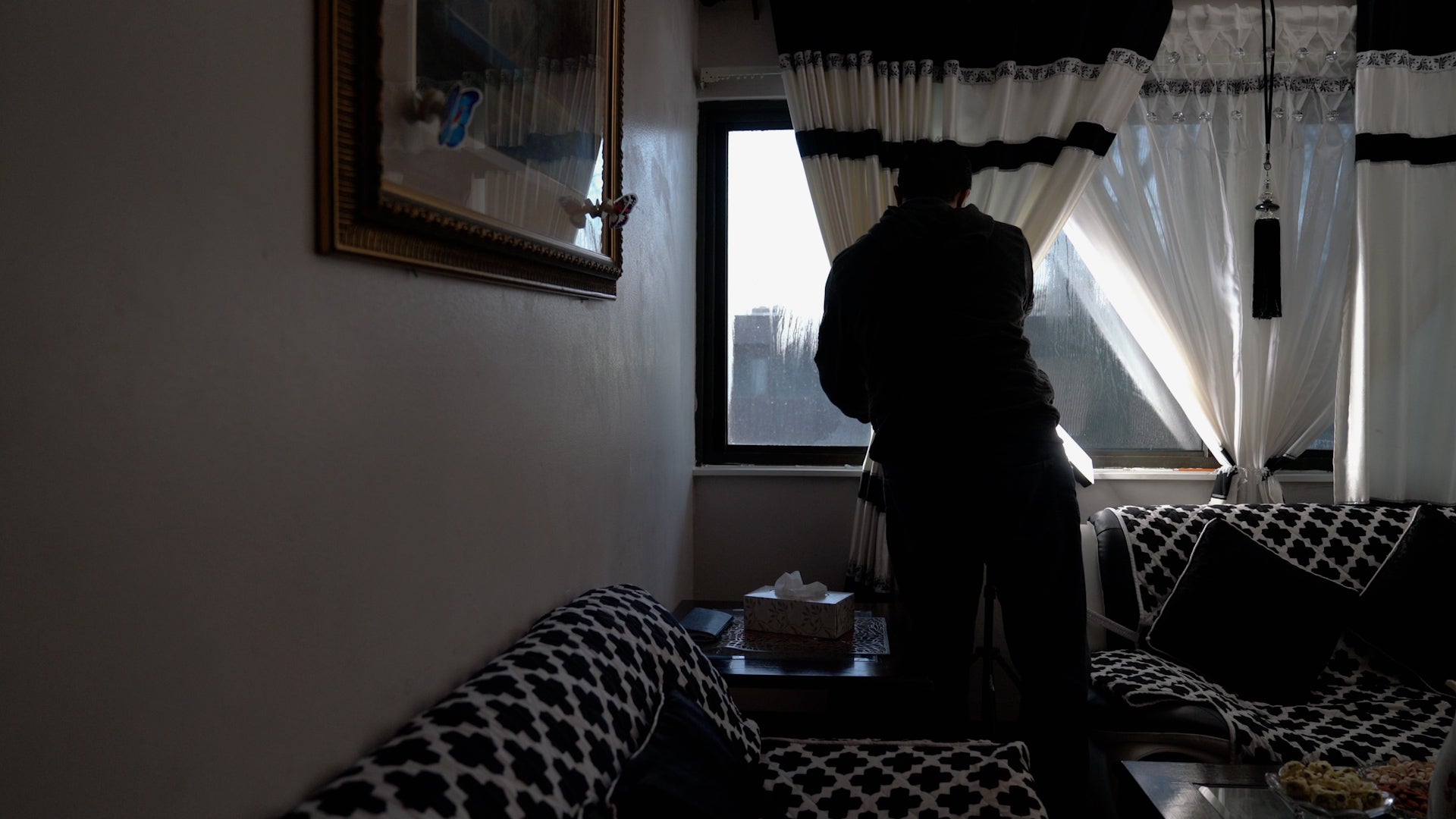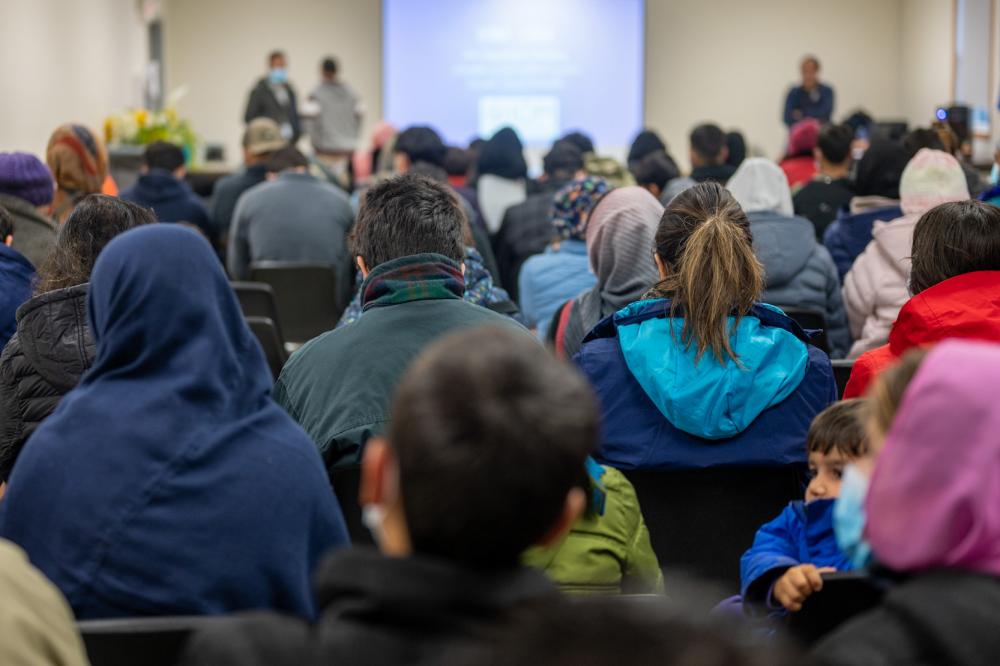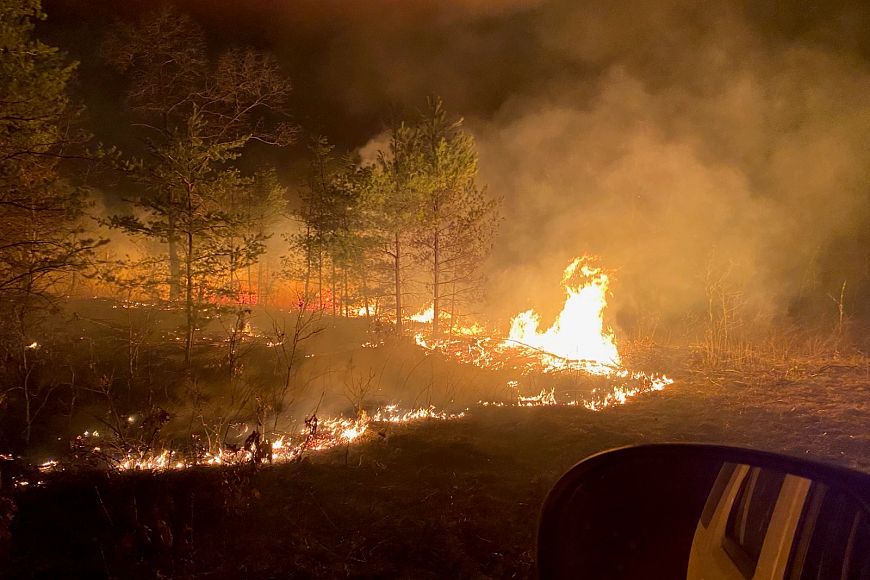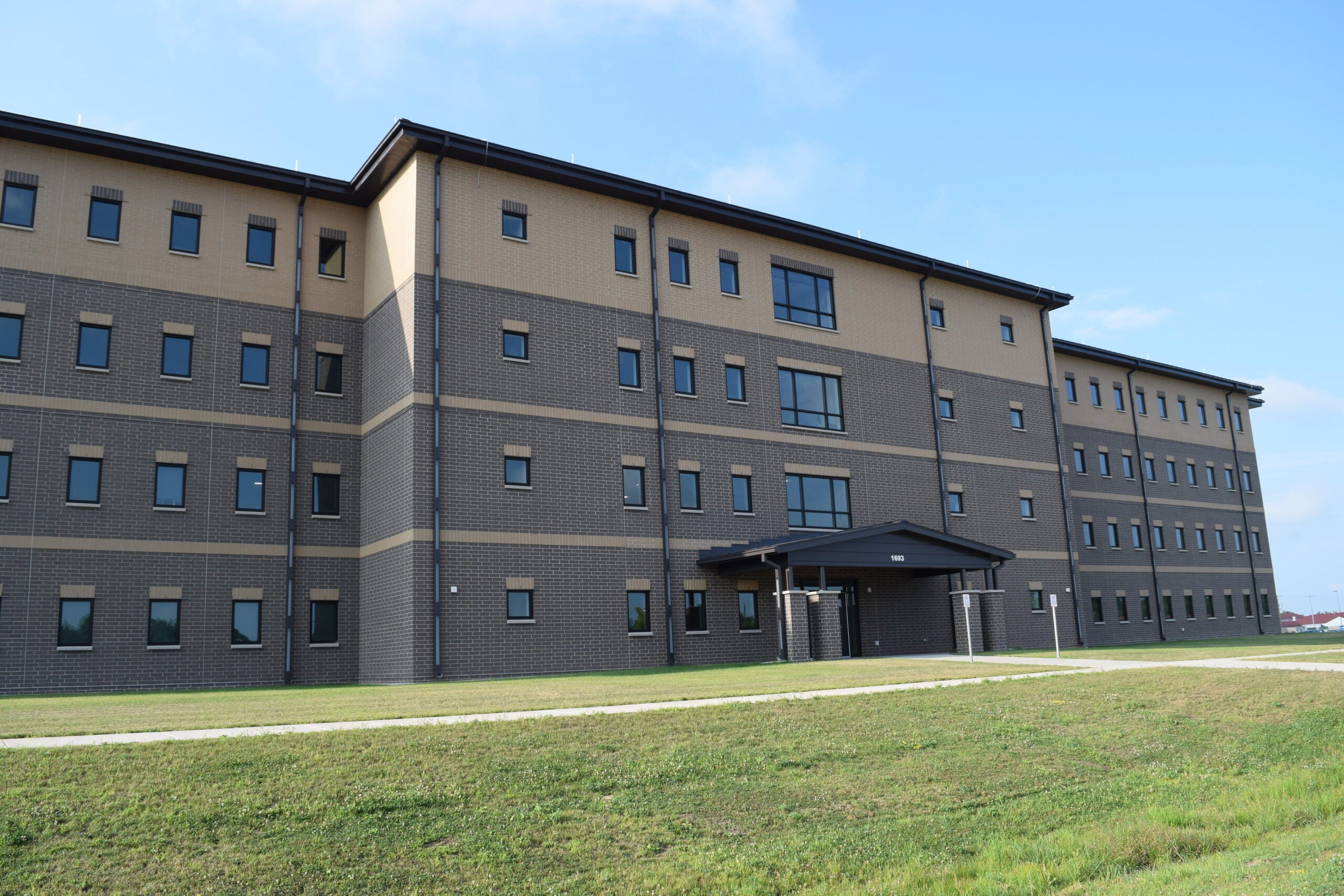Four weeks after evacuees from Afghanistan began arriving at Wisconsin’s Fort McCoy, a federal official at the base says they’re preparing for a large number of people to start leaving and settling across the country.
Skye Justice, the U.S. State Department’s team lead on the interagency task force at Fort McCoy, said the Monroe County base is currently near capacity and officials have so far focused on meeting Afghans’ immediate needs, including medical care for those with serious health needs and legal assistance as they complete immigration paperwork.
“The exact amount of time that a family will spend at Fort McCoy will vary from family to family. But we are now at a point at Fort McCoy where we anticipate that larger numbers of people will begin leaving the fort,” Justice said.
Stay informed on the latest news
Sign up for WPR’s email newsletter.
Justice didn’t say how many people have left the base so far or what the pace for departures will be moving forward.
Most evacuees arrived in large groups on military or charter aircraft at Volk Field. Justice said they will be leaving the base for their new homes with their family unit or as individuals, some using local airports.
Sponsors in their new community, who are supported by regional and national nonprofits that provide resettlement services, will welcome the families and help them start their new lives.
“Everyone will have assistance with housing, securing a place to stay, their immediate needs for food,” Justice said. “Sponsors cook meals for them and take them to the grocery store. They help ensure that they are received and set up in their new community, that they know things like where to find the bus or where the local schools are located.”
Mary Flynn is program manager for Lutheran Social Services of Wisconsin and Upper Michigan, one of the agencies that will be supporting the 399 Afghan evacuees expected to be resettled in Wisconsin. Flynn said her organization has already started working on one resettlement case, though they aren’t coming from Fort McCoy. She said she isn’t surprised that it’s taken longer than officials first estimated to get people to the resettlement stage.
“To me, this is not unusual that it would take a little bit of time. So, I think that they want to do it right and they don’t want to rush it,” Flynn said.
Flynn said her organization has been working to find and prepare local community groups like churches to support the refugees once they arrive. She said they’ve seen an outpouring of support, but it does take some preparation for sponsors to understand how best to help the new arrivals.
“We want them to understand that we do not expect them to adopt families. We really want helpers to teach people so that there’s not long-term dependence on the welcoming group. We want them to help them learn how to ride the bus, to teach them how things work in the United States,” Flynn said.
Dawn Berney, executive director of Jewish Social Services of Madison, said her group has also been receiving support from the community. One road block her group is facing is find people who speak Pashto or Dari, the main languages of Afghanistan, and who would be willing to help translate.
“There aren’t very many people who can act as interpreters and I don’t have staff that speak those languages so communication becomes much harder, much slower. Google Translate is good, but it’s just not that good,” Berney said.
All Afghans staying at military bases like Fort McCoy already have a legal immigration status in the U.S. But many people have arrived under an uncommon status called humanitarian parole. That has caused some people working in refugee resettlement to question whether the arrivals will be eligible for all of the benefits typically offered to refugees, such as access to the Supplemental Nutrition Assistance Program while they look for employment.
“That’s of concern to us because they were evacuated to the United States under some really traumatic situations,” Flynn said. “We remain hopeful and optimistic that our country will come through and do what’s needed to make sure that they get a good start after everything that they have gone through.”
A State Department spokesperson said in an emailed statement that the agency has “requested legislation from Congress” to make federal benefits similar to those received by refugees or special immigrant visa holders available to those with humanitarian parole status.
Justice said the sheer number of people needing to be resettled is “historic” and the federal government is still looking for more assistance from people who can act as sponsors or help refugees find employment.
“Because so many people were evacuated from Afghanistan in a short period of time, it does stress the system that normally receives refugees in the United States,” Justice said. “That’s why we’re organizing a national effort to ensure that every family who has arrived in the U.S. has a sponsor, has a really great start in the next chapter of their lives.”
He said people interested in signing up to help should go to Welcome.us, a new public-private partnership.
Justice said many of the people at Fort McCoy already have a support network here in the U.S. because they or their family member worked for the U.S. government or an American organization in Afghanistan.
“I met a gentleman the other day who has a job offer in Washington D.C. I met a journalist who is going to be doing a fellowship program out in California. So part of what we’re doing is ensuring those people who have networks in particular parts of the country are able to travel and start their new life,” Justice said.
He said the base also received many family members of U.S. citizens or legal permanent residents and they are working to reunify them with their loved ones.
For those without personal or professional connections here, Justice said officials will make sure they have sponsors who can help provide that network.
Justice said Fort McCoy could end up receiving more evacuees if the base has capacity when they arrive in the U.S. from overseas transit sites. But he said for now, officials are focused on the evacuees who are already at the base.
While many people are stepping forward right now to help, Berney said it will be a long-term process to help Afghans settling in Wisconsin feel a part of their new community. She hopes volunteers will continue looking for ways to help once the immediate crisis is over or consider helping with refugees from other countries who arrive in the state throughout the year.
Wisconsin Public Radio, © Copyright 2025, Board of Regents of the University of Wisconsin System and Wisconsin Educational Communications Board.
